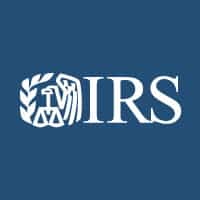 When a tax debtor claims that he or she is unable to meet his or her federal tax obligations, the Internal Revenue Service (IRS) must endeavor to learn more about the tax debtor’s financial situation in order to verify this claim. By doing so, the IRS learns more about the debtor’s financial ability to pay, and can thereby reach a more efficient arrangement between the tax debtor and the government. Form 433-A is the practical means by which the IRS learns more about the tax debtor’s situation.
When a tax debtor claims that he or she is unable to meet his or her federal tax obligations, the Internal Revenue Service (IRS) must endeavor to learn more about the tax debtor’s financial situation in order to verify this claim. By doing so, the IRS learns more about the debtor’s financial ability to pay, and can thereby reach a more efficient arrangement between the tax debtor and the government. Form 433-A is the practical means by which the IRS learns more about the tax debtor’s situation.
On the one hand, the IRS cannot simply allow tax debtors to attest to poverty as cause not to pay taxes; in such circumstances no one would pay taxes. On the other hand, requiring an indigent person to pay the full amount of taxes owed, where full interest and all penalties apply, would create an untenable and injurious situation for the tax debtor, and would also probably decrease that tax debtor’s long-term ability to repay the IRS. Thus, the process of loss mitigation begins with an assessment of the tax debtor’s assets through a Collection Information Statement, also known as Form 433-A.
There are a number of situations in which a tax debtor will need to complete Form 433-A. Such situations include:
- If you owe income tax on Form 1040;
- If you are “responsible person” for a Trust Fund Recovery Penalty;
- If you are personally responsible for a partnership liability;
- If you are an individual owner of a limited liability company that is a disregarded entity; or
- If you are self-employed individual or if you have self-employment income. For purposes of filling out Form 433-A, you are considered to be self-employed if you are in a business for yourself, or carry on a trade or business as a sole proprietor or an independent contractor.
Internal Revenue Service, “How to Prepare a Collection Information Statement (Form 433-A),” available at https://www.irs.gov/pub/irs-pdf/p1854.pdf.
Before a tax debtor can file Form 433-A itself, he or she must collect all necessary information, including all relevant financial information as to bank accounts, investment accounts, cash on hand, credit card accounts, and insurance policies. In addition to assets, the tax debtor must be able to show documentation as to monthly income, whether it be income from wages or other sources such as alimony or social security. Information as to monthly expenses will also be necessary and should be collected beforehand. Ultimately, National Standards for Food, Clothing, Healthcare, and miscellaneous items will be used to determine a tax debtor’s allowance in each category, and ultimately to determine a fair payment plan for the tax debtor.
______________________________________________________________________
Please keep in mind the information and advice presented in this blog is not intended to be used as formal legal advice. Contact a tax professional for personalized tax advice pertaining to your specific situation. While we try and answer all parts of the question when we write our blogs, sometimes there may be some left unanswered. If you have any questions about your problems with the IRS, SBOE, FTB, or BOE, or tax law in general, call RJS Law at (619) 595-1655.

Leave a Reply